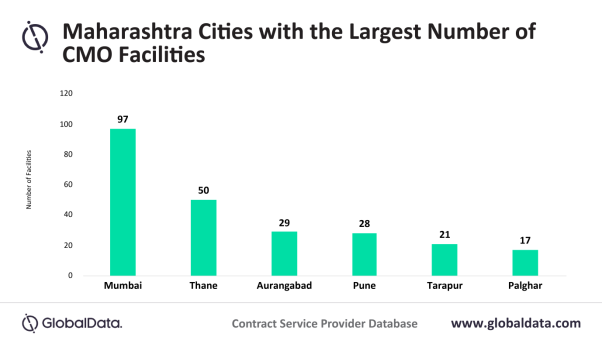Covid-19 affects global and domestic API supply in Maharashtra: GlobalData
July 14, 2020 | Tuesday | Reports/white papers
Widespread reduction of manufacturing capacity in India will severely disrupt the global and domestic supply chain, particularly for active pharmaceutical ingredients (APIs), says GlobalData, a leading data and analytics company.
Pharma manufacturing is exempted from the lockdown measures in India; however, the movement of materials appears still to be limited, the workforce to carry out manufacturing is reduced and pharma employees are restricted from travelling into work across multiple Indian states. This labor disruption means raw materials are not reaching the pharma factories or are being delayed, bringing down the production. Widespread reduction of manufacturing capacity in India will severely disrupt the global and domestic supply chain, particularly for active pharmaceutical ingredients (APIs), says GlobalData, a leading data and analytics company.
Adam Bradbury, PharmSource Analyst at GlobalData, comments: “Mumbai contains the largest number of contract manufacturing facilities in Maharashtra by far with 97. COVID-19 has hit Maharashtra the worst compared to other Indian states, with approximately 245,000 confirmed cases and 10,300 deaths as of 13 July 2020. Most of these cases have occurred in the highly populated cities of Mumbai (66% of cases) and Thane.”
However, there are signs that the nation’s manufacturing is recovering. A manufacturing campus in Baddi, Himachal Pradesh, the largest pharma hub in Asia, responsible for substantial generics and API production and more than a third of India's pharmaceutical output, began reopening in late April and May 2020 after its facilities were fully shut or forced to operate at severely reduced capacity due to COVID-19 containment measures. The affected companies included Abbott Laboratories (Abbott Park, IL, US), Dr. Reddy's Laboratories Ltd (Telangana, India) and Sun Pharmaceutical Industries Ltd (Maharashtra, India).
Mr Bradbury concludes: “Furthermore, India has largely lifted the export restrictions it imposed in March and early April 2020 to prevent the domestic drug shortages caused by the pandemic. Since the easing of restrictions, India has boasted of supplying 2.8 million doses of hydroxychloroquine and 1.9 million doses of paracetamol to other countries.”









